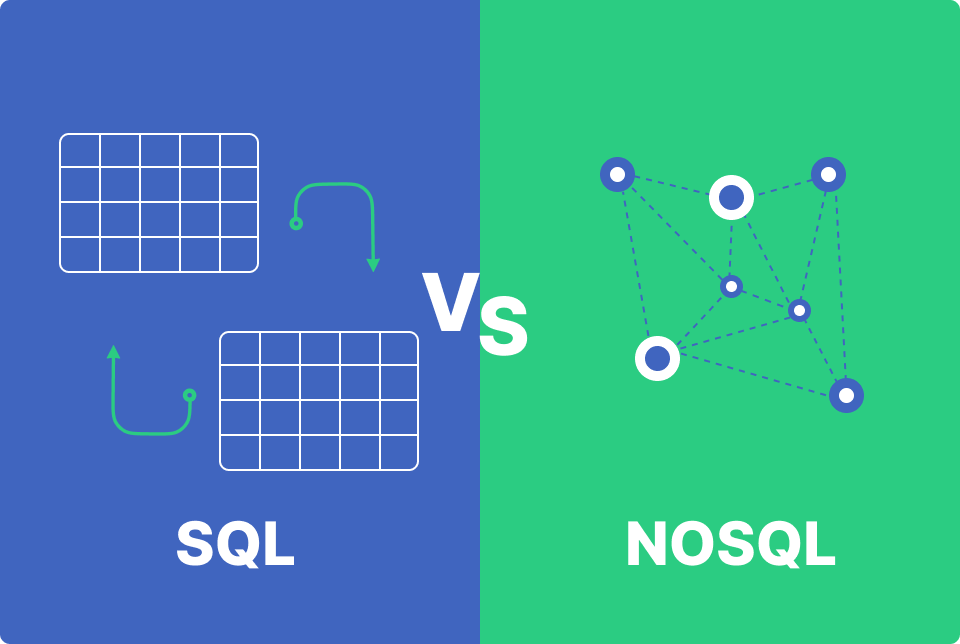
Ivan Traykov
05 Oct
10 mins read
- Copy link
Exploring Database Options: SQL vs. NoSQL

In the dynamic world of web development, choosing the right database can be a pivotal decision that significantly impacts the performance and scalability of your applications. Among the myriad of options available, SQL and NoSQL databases have remained the foremost contenders, each offering a unique set of features, advantages, and challenges.
SQL Databases
SQL (Structured Query Language) databases have been the traditional choice for many organizations. They are characterized by their use of structured data and a powerful query language. SQL databases, such as MySQL, PostgreSQL, and SQL Server, are known for their ACID (Atomicity, Consistency, Isolation, Durability) properties, ensuring data integrity and reliability in every transaction.
The structured nature of SQL databases makes them an excellent choice for applications that require complex transactions and queries, especially when the data structure is clear and unlikely to frequently change. They excel in scenarios where data’s integrity, consistency, and relationship are paramount.
NoSQL Databases
On the other hand, NoSQL databases, like MongoDB, Cassandra, and Redis, are favored for their flexibility and scalability. They can handle unstructured or semi-structured data and are particularly adept at managing large volumes of data and high traffic loads. Unlike SQL databases, NoSQL databases do not require a fixed schema, and data can be inserted without first defining its structure.
This flexibility makes NoSQL databases a popular choice for businesses that need to quickly adapt to changing requirements. They’re well-suited for applications that require multi-dimensional scaling and have diverse data types.
Key Distinctions
1. Data Storage:
SQL databases store data in tables, making them efficient for handling complex queries and transactions. NoSQL databases, however, can store data as key-value pairs, wide-column, graph, or document stores, enabling them to manage varied data models effectively.
2. Scalability:
SQL databases are typically vertically scalable, meaning you can increase performance by enhancing the horsepower (CPU, RAM, SSD) of the existing hardware. NoSQL databases are horizontally scalable and can handle more traffic by adding more servers in the database.
3. Flexibility:
NoSQL is more flexible with the types of data it can store. This adaptability makes it a fitting choice for applications where data structures are evolving rapidly.
Which One to Choose?
The choice between SQL and NoSQL should be influenced by your specific project requirements. For applications that benefit from a well-defined schema and require complex transactions, SQL can be the optimal choice. In contrast, if your application needs to scale horizontally or requires flexibility to handle diverse data types, NoSQL could be more appropriate.
Conclusion
There’s no one-size-fits-all answer in the SQL vs. NoSQL debate. It’s about aligning your choice with the specific needs and scale of your application. Consider factors like the complexity of data and queries, the volume of data, traffic expectations, and how quickly your application needs to evolve to make an informed decision.
In today’s multifaceted environment, it’s also worth considering hybrid models that combine the strengths of both SQL and NoSQL databases, offering both flexibility and reliability to handle a broad range of application needs efficiently. Your application's ultimate success hinges not just on selecting the right database but on aligning that choice with your strategic goals, operational capabilities, and the evolving landscape of user expectations.